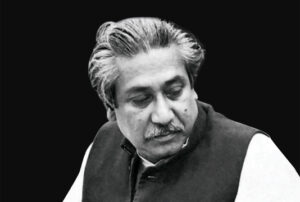Vietnam has surprised the world by successfully combating the coronavirus virus with only 268 infections and no deaths and started to ease lockdown restrictions on April 23 when the rest of the world except China and South Korea are struggling hard to contain the spread of the pandemic. This is a stunning success when one compares the situation in the USA, world’s richest country, and the United Kingdom where infections and deaths continue to soar. The US has so far recorded more than 55,499 deaths and 990,021 cases of virus infection. The UK has reported 20,732 deaths and 152,840 cases of Covid-19. The pandemic also battered the rest of Europe.
Vietnam watchers find the reasons behind the spectacular success in the early start of the battle against the virus very much in January soon after it broke out in the Chinese city of Wuhan in Hubei province and in pursuing every single potential person who came in contact with a Covid-19 case.
Communist Vietnam declared caronavirus its enemy and mobilised the state apparatus and the whole society in the fight against it, according to reports published in the international media.
As the country shared a long porous border with China, Vietnam was fully aware of the danger it faced and banned all flights from its big neighbour from early February, before any other country had done so. Vietnam declared its war on coronavirus during the celebration of the Tet New Year in late January when spread of the virus was still confined to China.
According to media reports, when little over a dozen cases were reported in early February Vietnam put a small town with a population of 10,000 near Hanoi under lockdown. ‘Fighting the epidemic means fighting the enemy’, Vietnam’s Prime Minister, Nguyen Xuan Phuc declared, said reports published in the western press and media.
All schools and colleges were closed since early February while people coming from Covid-19 risky countries were all put under a 14-day quarantine. Contact tracing was pursued aggressively. People tasked with finding suspected cases visited all homes in their communities. Work of health workers benefitted from the grassroots Communist Party organization plus the widely respected army set up which enforced the lockdowns, looked after quarantined people and took care of their food and other needs.
German news outlet Deutsche Welle has reported, ‘To take the fight to coronavirus, Vietnam instituted rigorous quarantine policies and carried out complete tracing of all people who came in contact with the virus. These measures were implemented much earlier in the course of the epidemic than in China, where lockdowns of entire cities were used as a last resort to keep the virus from spreading further.’
Vietnam’s success in the battle can also be traced to the mobilization of the entire society in it. A CNA report quotes the World Health Organization’s Western Pacific regional director, Takeshi Kasai as saying, ‘Vietnam’s success in convincing the public to cooperate has been the key.’
Takeshi Kasai continued, ‘They’re really doing their part,’ and said he believed around 80,000 people were placed under quarantine. ‘I think that’s the reason why they were able to continue to keep the number (of infections) small,’ he added.
Although Vietnam did not have the resources to test as many potential coronavirus carriers as possible at the shortest possible time as was done by South Korea which reported testing of 10,000 samples daily, Vietnam’s sample tests totalled 180,000 up to the 23rd of April, according to reports.
Last Wednesday after reporting no new infections for the sixth consecutive day, the government said some shops and services will be allowed to reopen. On Thursday, a few of the capital’s cafes had resumed service, although the streets were still fairly quiet.
The spectacular success in containing the virus has, however, come at a huge cost. Thousands of businesses closed in January and February followed the closure of big conglomerates because of the fall in tourism. And this has cost employees jobs. The government has made available the equivalent of 1.1 billion dollars to pump into the economy and maintain liquidity. But the shutdowns are likely to dry up tax revenues, government officials feared. The Vietnam government has thus asked for voluntary donations from citizens who are complying, reports say.
Mostafa Kamal Majumder




